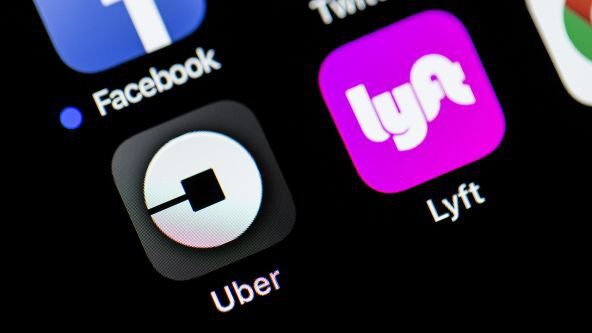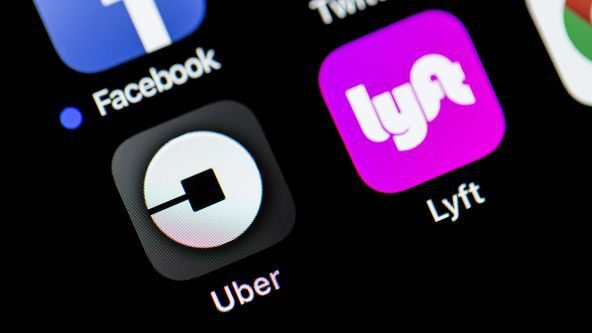Uber and Lyft — two of the original bad boys of the disruption economy — are poised to disrupt California politics.
The two ride share giants by the time Friday rolls around could suspend operations in California. Both firms have indicated that is a possibility if a judge doesn’t grant their appeal of a state law that since January has required them to reclassify drivers as employees instead of independent contractors.
If they were to tell the truth, both firms are probably hoping the court rejects their appeal. That’s because they have everything to gain from shutting down in response to the action taken by the California Legislature last year to basically boost compensation and secure benefits for gig workers.
Passage of Proposition 22 on the Nov. 3 ballot would undo much of the state law that reclassified a large swath of independent contractors from ride share drivers and independent truckers to newspaper delivery personnel as well as a multitude of contract workers in high tech and other fields. The ballot measure would improve some working conditions for gig workers but basically it is designed to allow a wide array of jobs to still be performed by independent contractors by essentially restoring the state’s previous litmus tests for what determined a big worker as opposed to an employee.
By pulling the plug on ride sharing services there will be a lot of people inconvenienced and unable to get rides in the middle of a pandemic. The millions of passengers the two ride services ferry have been more than likely ambivalent about Proposition 22 as well as the pro and con debate about the gig economy’s impact on workers. But pull ride services out from under them that they have used for years will be akin to taking a bat to a hornet’s nest.
And both companies will labor mightily to direct the anger to the universal mail-in ballots landing in the hands of voters the first week of October that will contain the antidote to address their rage — Proposition 22.
The message is simple. Pass Proposition 22 and once again you can summon rides using an app.
Temporarily shutting down service through at least Nov. 3 would also save the ride sharing services a boatload of money.
The pandemic torpedoed ridership and sent Lyft’s revenues for the second quarter down 61 percent over the previous April through June period and cost them $437.1 million in losses.
Uber’s revenue drop for the second quarter plummeted 27 percent prompting the company to post a $1.8 billion loss.
Two months or so of not operating in California would actually help improve the bottom line of both companies.
At the same time it would impact a lot of gig workers. Uber alone has 100,000 drivers in California. Drivers are on both sides of the fence when it comes to the state legislation that altered the definition of gig workers.
It is a safe bet that many drivers are far from being in a positron of the ride share firms where investors shower them with billions of dollars to burn through without making a profit.
They will likely be forced to keep trying to drive. Long before the feud between the California Legislature erupted with Uber and Lyft the many of the so-called contract drivers were giving rides off the books while “working” for a ride share firm.
The hypocrites that they are, Uber and Lyft forbid such a practice as the riders are “working” for them. That goes to the heart of the entire flap that led to Proposition 22 being placed on the ballot.
It is clear the ride share companies dictate working hours as their so-called independent contractors can’t flip off and on the switch when they are working giving rides or even work for a competing ride share firm even if they do in a manner that is clearly in different blocks of time.
More and more drivers have been “skimming” off regular repeat riders. Instead of going through the apps they have made arrangements to be called directly and be paid in cash often at lower rates.
Rest assured two things will happen. The practice will skyrocket if Uber and Lyft shutdown temporarily. And the California Legislature and the regulators they employ to sic on violators of the laws they pass will be furious.
That’s because those drivers stranded by Uber and Lyft will clearly become illegal Jitney cabs by giving rides without being licensed by the government.
The practice of people using the private vehicles to give others rides flourished for four years in the 1910s until taxi cab companies that greased the palms of lawmakers to erect barriers into the ride business to create protected quasi-monopolies. Municipal governments shared in the duplicity given they operated street car lines and viewed Jitney car drivers as a threat.
So government did what government does best and regulated non-preferred businesses out of existence that didn’t have friends they secured in high places wining and dining or through old-fashioned corruption.
If you don’t think the State of California is too distracted by declared emergencies involving excessive heat, wildfires, and the pandemic to have its standing army of regulators to start scouring the Internet for any drivers advertising they offer rides when Uber and Lyft temporarily shut down you’ve obviously confused California with Baja California.
It’s almost laughable. The same cast of characters in Sacramento that laud “disruptive economic” startups using technology to basically deliver the same services and products “old school” concerns do altered the marketplace by ignoring rules that the government has chained to those same “old school” concerns are now going after the tech darlings they once fawned over.
So how did Uber and Lyft get away with “breaking” state labor laws for so long before the California Legislature finally woke up?
Primarily they are mostly political hacks that use the clout of government to pick winners as they kowtow to politically correct trends and give little if any consideration to competing interests.
In this morality tale it may be difficult to pick out the good guys from the bad guys.
But if you look at it closely and realize the little guys — consumers and drivers — are going to take it on the chin no matter what, consider voting for Proposition 22 as its passage will arguably inflict the least amount of damage on them.





